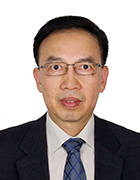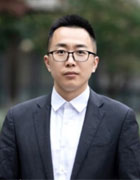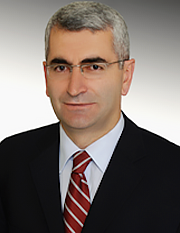
Prof. Udaya K. Madawala
IEEE Fellow
Department of Electrical Computer and Software Engineering
The University of Auckland
Auckland, New Zealand.
SHORT BIO-DATA:
Udaya K. Madawala graduated with a B.Sc. (Electrical Engineering) (Hons) degree from The University of Moratuwa, Sri Lanka, and received his PhD (Power Electronics) from The University of Auckland, New Zealand as a Commonwealth Doctoral Scholar. At the completion of his PhD, he was employed by Fisher & Paykel Ltd, New Zealand, as a Research and Development Engineer to develop new technologies for motor drives. At present as a Full Professor in the Department of Electrical and Computer Engineering at University of Auckland, New Zealand, he leads a group of researchers focusing on a number of power electronics projects that are related to energy and wireless EV charging systems for V2X applications.
Udaya is a Fellow of the IEEE and was a Distinguished Lecturer of the IEEE Power Electronic Society (PELS), and has both industry and research experience in the fields of power electronics and energy. He has served both the IEEE Power Electronics and Industrial Electronics Societies in numerous roles, relating to editorial, advisory, conference, technical & administration committees and chapter activities. He was the General Chair of the 2nd IEEE Southern Power Electronics Conference (SPEC)- 2016, held in New Zealand, and is also the Chair of SPEC Steering Committee. Udaya, who has over 300 journal and conference publications, holds a number of patents related to wireless power transfer (WPT) and power converters, and is a consultant to industry.
Speech Title: Distribution Networks : Challenges & Electronic Solutions
Abstract and Highlights: Power distribution networks, which connect individual consumers of electricity to large-scale transmission systems and generation sources, are a crucial part of modern society. However, the traditional role of distribution networks to distribute electricity to end users has changed due to increasing focus on renewable energy and electrified transportation, and are now tasked with hosting increasing amounts of distributed generation (DG) of energy to meet the ever-increasing energy demand. This requires power to flow in the opposite direction, from the customer to the substation, and challenges some of the normal operating principles of these networks. The smart grid is key to solving these problems. Demand management systems that aim to align user demand with the availability of supply are critical, and allow better use of existing network infrastructure. However, smart grids of the future essentially require power electronic technologies to allow for the regulation of power flow and fast control of network dynamics, including in distribution network. This seminar therefore discusses the challenges faced by distribution networks and presents the power electronic solutions, highlighting future directions of research.

Zhe Chen
Professor, PhD
IET Fellow, IEEE Fellow
Charted Engineering (UK),
Member of Danish Academy of Technical Sciences
Member of European Academy of Sciences and Arts
Aalborg University, Denmark.
SHORT BIO-DATA:
Zhe Chen (Fellow, IEEE) received the B.Eng. and M.Sc. degrees from the Northeast China Institute of Electric Power Engineering, Jilin City, China, and the Ph.D. degree from University of Durham, Durham, U.K.,He is currently a full Professor with the Department of Energy Technology, Aalborg University, Aalborg, Denmark. He is the Leader of Wind Power System Research Program with the Department of Energy Technology, Aalborg University and the Danish Principle Investigator for Wind Energy of Sino-Danish Centre for Education and Research. His research interests include power systems, power electronics, and electric machines. His current research interests include wind energy and modern power systems. Dr. Chen is an Associate Editor for the IEEE Transactions on Power Electronics, a member of editorial boards for many international journals, a Fellow of the Institution of Engineering and Technology (IET), London, U.K., and a Chartered Engineer in the U.K.
Speech Title: Green Energy Systems
Abstract and Highlights: Energy systems are in transition as a part of Green Transition. Electrification is a signficant feature of future energy systems. Traditonal fosil fuel based energy technologies are being replaced by renewable energy and other clean energy technologies, such as wind turbines, PV panels, power to hydrogen, carbone capture etc. which would signficantly change the characteristics of energy systems and present many challenges. Furthermore, Power electronics have a large scale application and microgrid becomes an important system structure.
The speech will brief the status of renewable energy based energy systems, the growing applications of power electronics, discuss some features of new power grids, such as microgrid. Some recent research work will be briefly introduced.

Prof. Shunli Wang
Academic leader of the National Electrical Safety and Quality Testing Center, Smart Energy Storage Institute (Southwest University of Science and Technology), China.
SHORT BIO-DATA:
Prof. Shunli Wang is a Doctoral Supervisor, Academic Dean, Academic Leader of the National Electrical Safety and Quality Testing Center, Academician of the Russian Academy of Natural Sciences, Provincial Senior Overseas Talent, Provincial level scientific and technological talents, Academic and Technical Leader of China Science and Technology City, and top 2% of top scientists in the world, who is an authoritative expert in renewable energy research. His research interests include modeling, state estimation, and safety management for energy storage systems. 56 projects have been undertaken, including the projects from the National Natural Science Foundation of China and the Provincial Science and Technology Department. 258 research papers have been published (Research Interest Score: 11547; Citations: 3167; h-index: 29). 53 intellectual property rights have been applied, of which 23 authorizations have been approved. 9 books have been published by famous publishers such as Elsevier and IET. 23 honorary titles or awards have been achieved, such as young scholars and leading experts of innovative talent teams. Also, the team has been continuously supported by the "University & Enterprise Innovative Talent Team Support Plan" and unanimously praised by employers and peer experts.
Speech Title: Core State Parameter Monitoring of High-reliability Smart Energy Storage Systems
Abstract and Highlights: As an important component of the smart grid energy storage system, high-precision state of health estimation of lithium-ion batteries is crucial for ensuring the power quality and supply capacity of the smart grid. To achieve this goal, an improved integrated algorithm based on multiple layer kernel extreme learning machine and genetic particle swarm optimization algorithm is proposed to estimate the SOH of Lithium-ion batteries. Kernel function parameters are used to simulate the update of particle position and speed, and genetic algorithm is introduced to select, cross and mutate particles. The improved particle swarm optimization is used to optimize the extreme value to improve prediction accuracy and model stability. The cycle data of different specifications of LIB units are processed to construct the traditional high-dimensional health feature dataset and the low-dimensional fusion feature dataset, and each version of ML-ELM network is trained and tested separately. The numerical analysis of the prediction results shows that the root mean square error of the comprehensive algorithm for SOH estimation is controlled within 0.66%. The results of the multi-indicator comparison show that the proposed algorithm can track the true value stably and accurately with satisfactory high accuracy and strong robustness, providing guarantees for the efficient and stable operation of the smart grid.

Prof. Dr. ilhami Colak
IEEE Senior Member
İstinye University, Turkey.
SHORT BIO-DATA:
ilhami Colak was born in 1962 in Turkey. He received his diploma in electrical engineering from Gazi University, Turkey, in 1985. Then, he did his MSc degree in electrical engineering in the field of Speed Control of Wound Rotor Induction Machines Using Semiconductor Devices at Gazi University in 1991. He received his PhD degree from Aston University in England on Mixed Frequency Testing of Induction Machines Using Inverters in 1994. He became an Assistant Professor, an Associate Professor, and a full Professor in 1995, 1999 and 2005, respectively. He has published more than 440 papers on different subjects, including electrical machines, drive systems, machine learning, reactive power compensation, inverters, converters, artificial neural networks, distance learning, automation, renewable energy sources and smart grids in the SCOPUS with 36 h-index. More than 320 of his papers have been cited in the SCI database of Thomson Reuters with 28 h-index and received more than 3650 citations. He has organized more than 100 international conferences and workshops. In the last fifteen years, he has concentrated his studies on renewable energy and smart grids by publishing papers, journals (www.ijrer.org), and (www.ijSmartGrid.org) and organizing international IEEE sponsored conferences (www.icrera.org), and (www.icSmartGrid.org). He is also the editor-in-chief of Electric Power Components and Systems (https://www.tandfonline.com/toc/uemp20/current). He has 1 international and 3 national patents. He also spent around 3 years at the European Commission Research Centre (JRC) as an expert in the field of smart grids in the Netherlands. He used to be a dean of engineering faculty, vice rector and the rector of the Gelisim and Nisantasi universities. He is currently a full professor at Istinye University. Professor COLAK achieved a great success of 10% by being included in the "World's Most Influential Scientists" 2% list, which was created USA Stanford University considering the "Works of the Year 2020-2021-2022-2023".
Speech Title: upcoming
Abstract and Highlights:


 Phone/Mobile: +86-536-7321883/+86-186-5322-6419
Phone/Mobile: +86-536-7321883/+86-186-5322-6419